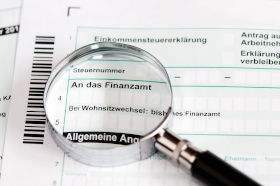
The best public and private insurance plans
An independent 2024 review of the best German public and private health insurance plans for singles, couples and families including expat health insurance for visa applic...
Can I just walk into doctors in Germany? What do I have to pay? How do I get the best treatment? An overview for expats.

Prefer video? Watch the video How does health insurance in Germany work on YouTube.
Health insurance is obligatory for everybody in Germany by law. You can freely choose among healthcare insurers (Krankenkasse) but not necessarily between public and private health insurance. Read my article about the difference between public and private health insurance in Germany and how to pick the best option for you.
“Amazing. Health care is seen as a Human Right here. It’s not just for those who can afford it” source
These are the steps to get health insurance in Germany:
Health insurance is not tied to your job. You do not lose health insurance coverage if you lose your job.
Once you received your health insurance card (Gesundheitskarte), choose freely among most doctor's offices or hospitals. All you need is to swipe your insurance card at the receptionist's desk. You don't have to pay if you have public insurance: the bill is sent directly to the insurer who takes care of it.
Some physicians only accept patients which are privately insured but most accept all patients. You can identify these physicians if there are signs saying something like Nur Privatpatienten. Alle Kassen means that the doctor accepts all patients.
You have to make an appointment before visiting specialists. General practitioners often have hours where you can walk in without an appointment (Freie Sprechstunde) but it is recommended to make an appointment to reduce waiting times. Doctolib is an easy way to make appointments online.
The treatment quality varies by the doctor but is generally high. You can also call an ambulance and don't have to pay in case of an emergency. Preventive checkups are covered as well.
Tip: It's worth doing specialist appointments by phone as there are often free time slots available that do not show up on websites.
While you can often walk into general practitioner's offices (Allgemeinmediziner) and wait for anything between 10 minutes and a couple of hours before it is your turn, appointments at specialists will sometimes not be available immediately. You might have to wait a few weeks to get specialists appointments unless you are privately insured.
You can make appointments with dentists, eye doctors, gynecologists, orthopedists or any other doctor yourself except for laboratory examinations and x-ray screenings which have to be approved by your family doctor (Hausarzt or Hausärztin) or any other general practitioner. Specialists might ask for a transfer form or Überweisungsschein from a general doctor before making an appointment. You need a transfer for all MRT scans.
These are the steps to make doctor appointment in Germany:
 A screenshot of the Doctolib website.
A screenshot of the Doctolib website.Alternative websites to make doctor appointments:
Please note that family doctors in Germany often have walk-in hours without appointments. Most doctor's offices close on weekends. Call 116117 if you want to speak to a doctor outside office hours. They can send you a doctor free of charge in urgent cases if you are insured with a public health insurer. Self-payers can visit www.arztbesuche.de or www.teleclinic.com for an online doctor consultation.
Call 112 in case of an emergency. You do not have to pay for transport to the hospital with an ambulance in case of an emergency. In this case, German health insurance covers the transportation costs. Do not call a cab in case of emergency: it takes longer, is less secure and you have to pay yourself.
I do not advise going directly to a hospital if your health issue is not urgent. Better go to the family doctor first who then refers you to a specialist if necessary. A family doctor is also referred to as Allgemeinmediziner or Hausarzt. Enter you postal code in this tool to find available doctors next to you.
Any doctor can hand out sick notes (Krankschreibung) but doctors in emergency rooms never hand out sick notes. You need to present a Krankschreibung to your employer to take sick leave. Often you only need to hand in a sick note in case you are sick for several days. Please check your employers' regulations for this.
Until 2023 the sick note was an actual piece of paper. Starting in 2023 the paper workflow has been replaced but you still need to visit a doctor in person to be declared sick and unable to work. au-schein.de offers a digital sick note after consulting one of their doctors via video chat.
Sick days don't have to be taken as holidays in Germany. On the contrary: sick days while you are on leave don't count towards your number of free days.
Employers are forced by law to continue paying salaries in case of sickness for up to 6 weeks. For a small monthly extra fee, public health insurance pays part of your salary for up to 78 weeks in the case of sick leave after 30 days.
Doctors give you medicine prescriptions on paper called Rezept, then you walk to the pharmacy and present the paper or your card in case of a digital receipt to get your medicine.
*Disapo.de sends medicine and anything you would buy in a pharmacy to your home, including *prescription pharmaceuticals using an E-Rezept.
Public health insurance covers dentists but you might want to pay extra for better-quality dental crowns. Orthodontic treatments up to the age of 18 are usually included. Not all health insurers cover dental cleanings by the dentist. Dental cleanings are mostly not included and cost around 100.-€.
Extra dental insurance is advised if you have many dental visits. We recommend *Feather dental insurance for English-speaking expats.
Eye care doctor visits are covered but public health insurance usually only cover part of the costs of glasses and usually do not pay for contact lenses source.
A spouse or registered partner without a job or working only a limited amount of time and minor children are insured with the main contributor at no extra costs in public health insurance (Familienversicherung) source.
Prescribed medication should not cost you more than 10.- Euro. Prescribed medication for minors is free. You need a prescription from a doctor before going to the pharmacy in order to benefit from this.
Vaccinations, except travel vaccinations, are included in public health insurance.
Maternity care is covered by the German health insurance system. Gynecologists, childbirth including cesarean section as well as the hospital stay after birth is paid by German health insurance. My family had public health insurance when my children were born and we opted to pay around an additional 400.- Euro for an optional midwife doing several house visits during pregnancy, accompaniment during birth and for a couple of weeks after birth.
The separation between public and private health infrastructure is less strong than in other European countries. While there are specialists who only accept privately insured patients, the German health infrastructure can generally be used by all.
Read more about the benefits of public vs. private health insurance in Germany or go directly to the health insurance plans review.

An independent 2024 review of the best German public and private health insurance plans for singles, couples and families including expat health insurance for visa applic...

Public vs private health insurance in Germany for foreigners. Your options and why cheap plans might turn out to be more expensive in the end.

What to pay attention for when applying for private health insurance in Germany.

Freelance artists or publishers in Germany are entitled to cheaper healthcare plans via the Künstlersozialkasse (KSK). A step by step guide.

A review of the most useful health apps in Germany.
You can't do all the work at home anymore and need help? Follow this step by step guide to get help covered by your German health insurance.
A step by step guide to find a doctor which speaks your language in Germany based on your ZIP code.

An overview of the different types of work visas in Germany. A starter guide for everybody who wants to work in Germany.

A honest review of Fyrst, Holvi, Kontist, Finom and Wise.

The best German bank accounts in 2024 for expats. A honest review of N26, DKB, 1822direkt, bunq, ING-DiBa and many more.

The German Blue Card visa is an option for a permanent residence permit if you are looking to work in mathematics, IT, natural sciences, engineering or human medicine or ...

How to dial a phone number in Germany.

The best German mobile phone and prepaid plans for expats. A review of Smartmobil, Telekom, Vodafone, Lebara, fraenk.

A guide to getting a German work visa for employees. This visa allows you to work and live in Germany.

Get your money back if you have to cancel your trip because of Corona.

This guide walks you through the all the necessary steps to remotely find a job in Germany, including an overview of the most important job search engines and common appl...

A step by step guide to get a visa to freelance in Germany.

A step by step guide to get your money back if an airline cancelled a flight but does not refund the money.

A honest review of German internet providers and how the pick the best one for your location (and save money).

A step by step guide to register an address in Germany. This is called Anmeldung an necessary to get a tax id, open a bank account or to sign up for health insurance.

The essentials to run a business, consultancy or freelance in Germany: register, get a tax number, healthcare, invoicing.

All about the German student visa, the application process and required documents.

A guide to find the best electricity company in Germany, including comparison websites, and companies with English support.

Our guide shows you the necessary steps to open a bank account as a foreigner in Germany.

An introduction into the German tax system for employees.

83% of German households have a private liability insurance. Get protection for as little as 43.- Euro per year. A review for expats including dog liability.
Find an English speaking tax consultant close to your address.

The fastest way to do your taxes in Germany without speaking German. A review of Wiso, Smartsteuer, Wundertax, Sorted.

Introduction into taxes in Germany for consultants, freelancers and other self-employed. This article gives you an overview of the most important types of taxes.

A bureaucratic nightmare with a happy end.

A checklist of steps to do after you found a flat: registration, electricity and internet providers, moving services, useful insurances and warnings of possible scams.